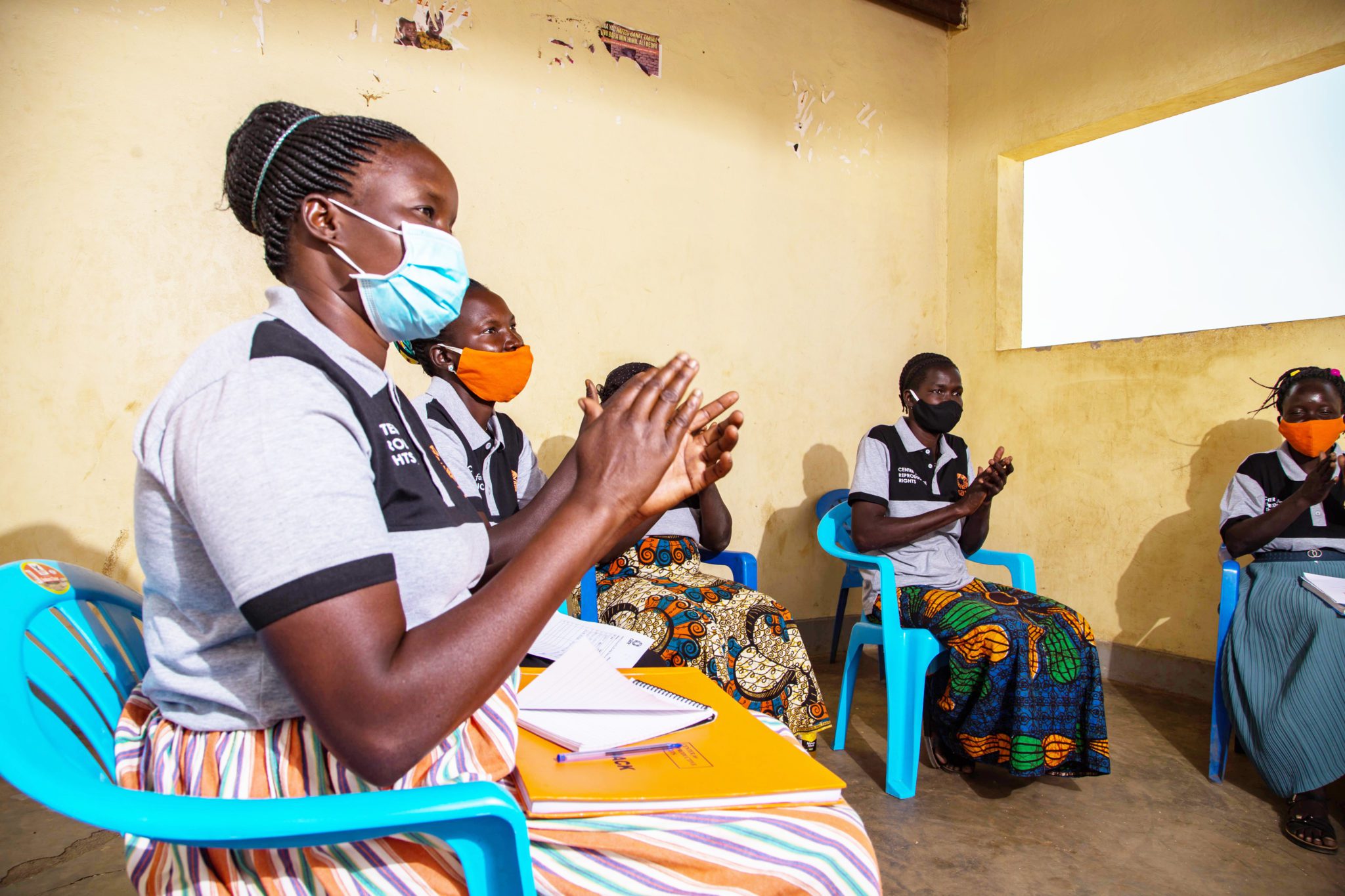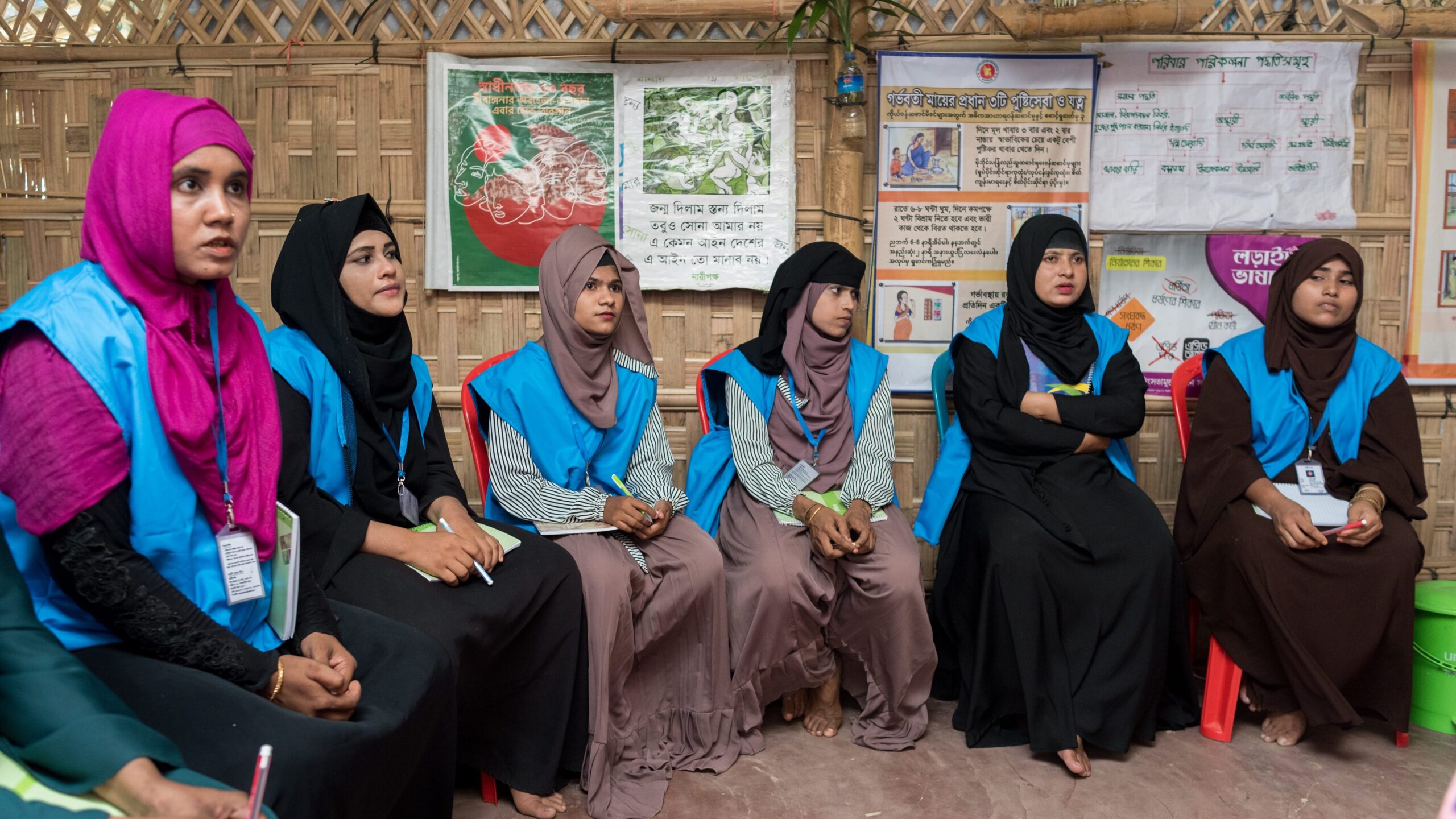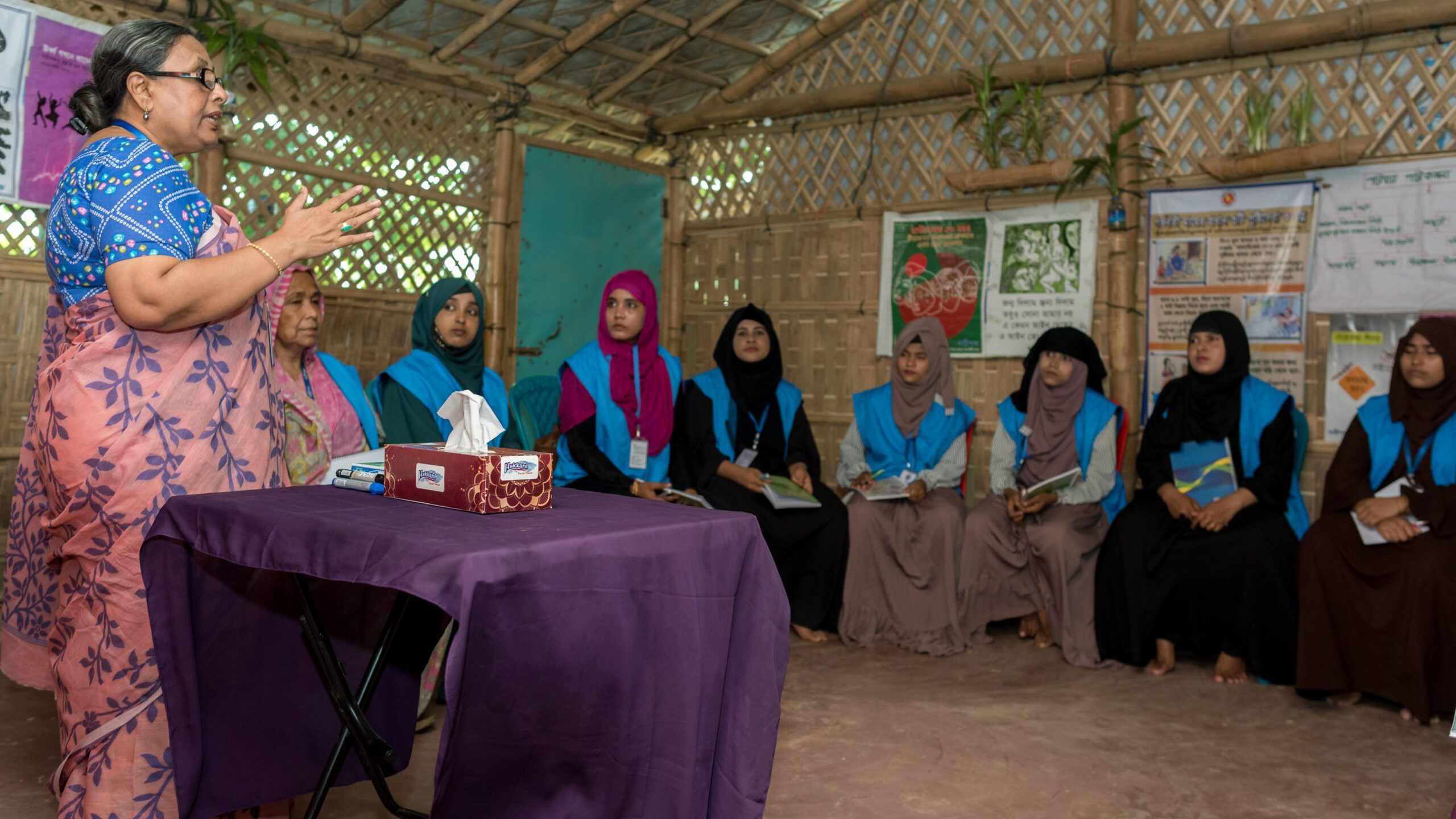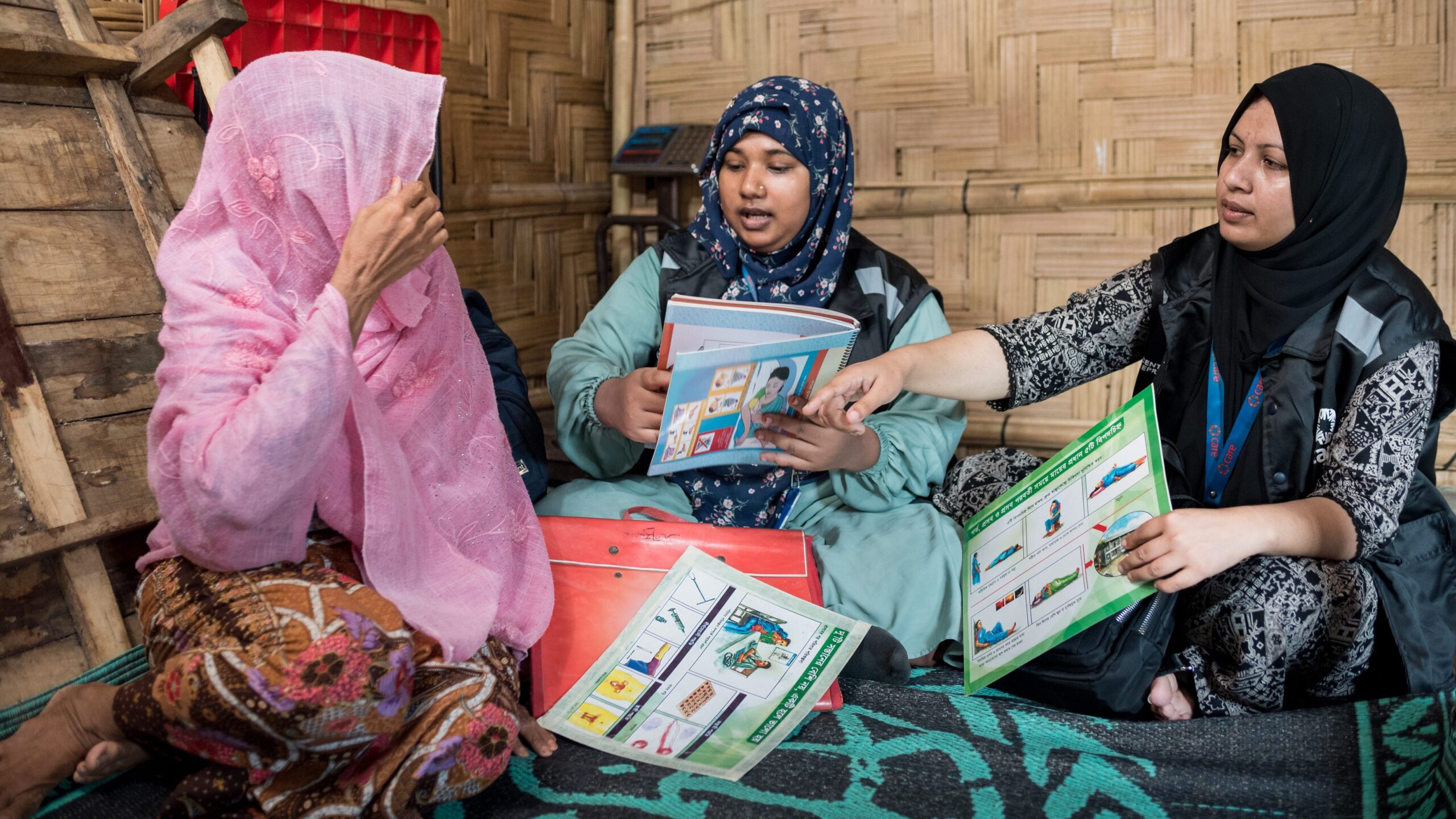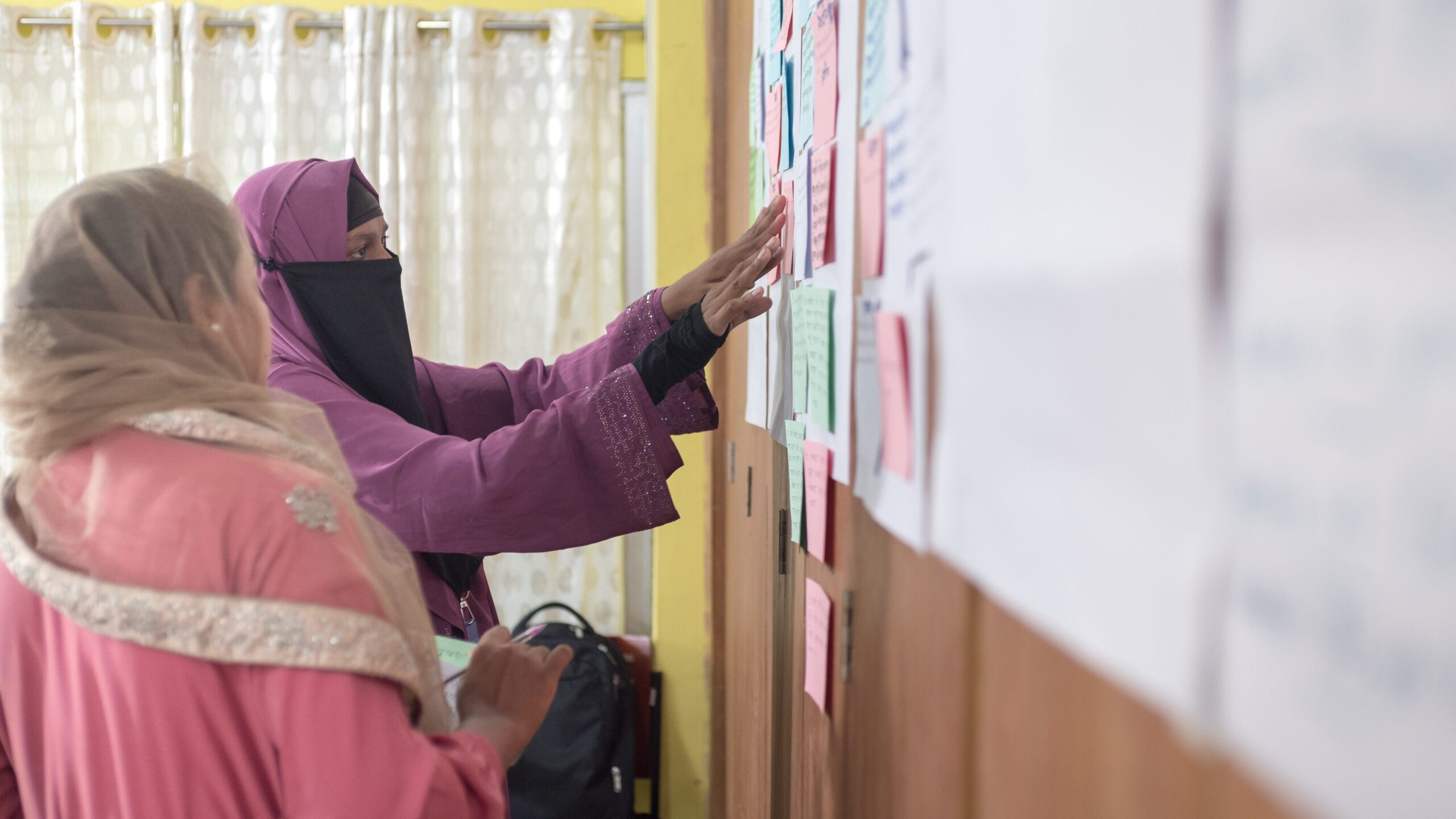Center-led Program in Bangladesh to Improve Reproductive Health Services for Rohingya Refugees
Modeled on its successful accountability initiative in Uganda, program at Cox’s Bazar refugee settlement aims to enhance delivery of sexual, reproductive and maternal health services.
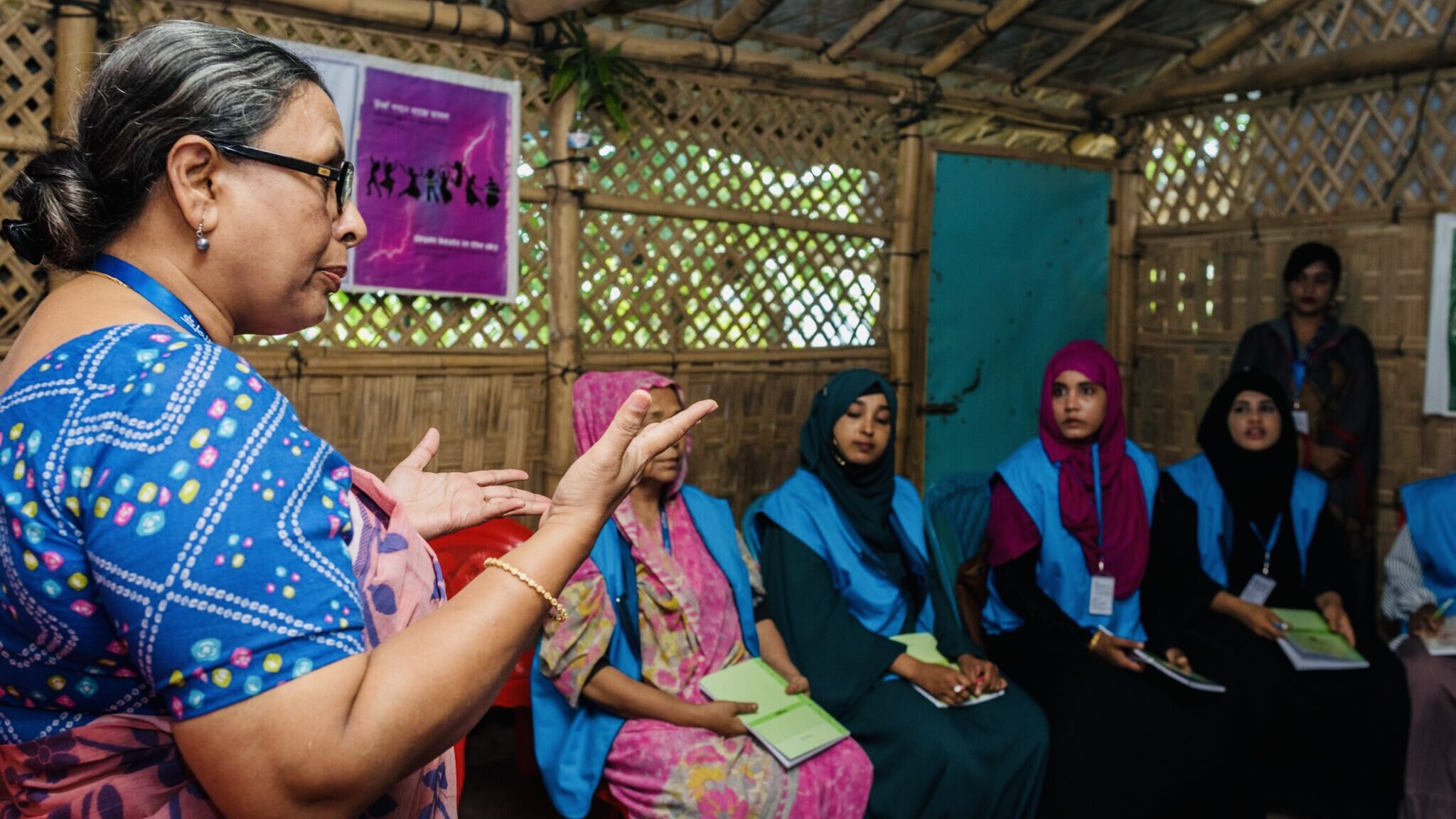
Working with national partners in Bangladesh, the Center for Reproductive Rights is leading the implementation of a program to improve the delivery of reproductive health services and protect reproductive rights for Rohingya women and girls living at the Cox’s Bazar refugee settlement.
One of the largest refugee settlements in the world, Cox’s Bazar hosts over one million Rohingya refugees who have been forcibly displaced from Myanmar due to the military’s campaign of ethnic cleansing. The campaign has subjected the Rohingya to horrific systemic violence, torture, and sexual and gender-based violence.*
In partnership with CARE Bangladesh, Bangladesh Legal Aid and Services Trust (BLAST), and Naripokkho, the Center is designing a new participatory and rights-based accountability system to strengthen the delivery of sexual, reproductive, and maternal health (SRMH) services to ensure that women and girls have access to services without discrimination. The three-year project started in January 2022.
The initiative builds on the successful human-rights accountability work piloted at a Uganda refugee settlement in a joint initiative by the Center with CARE International. That project, completed in 2021, applied a human rights framework to build accessible and responsive accountability mechanisms at the settlements and succeeded in bringing the refugee women and girls closer to decisions that impact their lives.
“Our accountability model will equip the women and girls at the Cox’s Bazar settlement with an understanding of what their human rights are so they can actively participate with local human rights defenders to address rights violations, help facilitate better access to health care, and improve health outcomes,” said Grady Arnott, Senior Adviser at the Center.
Read more.
Uganda Pilot Program Improves Delivery of SRHR Services for Refugees
Learn about the success of the “circle of accountability” program by the Center and CARE Uganda.
At refugee settlements such as those in Cox’s Bazar, women and girls in humanitarian crisis face numerous barriers in accessing SRMH services and information. This results in disproportionately high rates of reproductive rights violations and poor health outcomes, including high rates of maternal mortality. In such settings, the voices of women and girls experiencing reproductive rights violations often remain unheard, and there is little access to effective remedies for those whose rights have been violated.
Myanmar’s Ethnic Cleansing Campaign Against the Rohingya
Since 2017, nearly 1.3 million Rohingya people have fled Myanmar into Cox’s Bazar in Bangladesh to escape persecution, human rights violations, and widespread violence. Such violence includes a campaign of ethnic cleansing perpetrated by the Myanmar military against the Rohingya, an ethnic Muslim minority group in the predominantly Buddhist country. Over half of the population in Rohingya refugee camps are women and girls who continue to face exposure to sexual and gender-based violence (SGBV), discrimination, and disrupted access to health and legal services.
Read about the findings of the UN’s International Fact-Finding Mission on Myanmar here.
Program Focuses on Accountability, Transparency and Participation
The initiative at Cox’s Bazar—which is part of the Center’s ongoing work to ensure accountability for sexual and reproductive health and rights services in humanitarian settings—includes three components:
- A continuous “circle of accountability” mandating community-led structures to collect, review, and monitor complaints received from the women and girls. Representatives from humanitarian organizations and the refugee community—who are trained on human rights and accountability—ensure that sexual, reproductive, maternal health and rights (SRMHR) issues are recognized and addressed and build a shared understanding of human rights and agency with the women and girls.
- Monitoring by human rights defenders. Community monitors from local civil society review complaints, give explanations for decisions taken, and facilitate access to effective remedy if rights are violated, and help to elevate community-based complaints.
- Meaningful participation by the refugee community. Community representatives design and lead monitoring and track implementation of responses to strengthen SRMH services.
So far, the initiative has trained over 2,000 Rohingya refugee women and girls about their health-related rights and held a dozen trainings with health service providers and humanitarian policymakers on rights-based approaches and comprehensive SRHR.
Ensuring Accountability for SRHR in Humanitarian Settings
The Center works in humanitarian and transitional justice settings to guarantee sexual and reproductive health and rights and to hold governments accountable for their human rights obligations.
In addition, the program has helped to improve health policy and practices at the settlement, with on-the-ground advancements such as:
- Outdoor 24-hour lighting at health facilities to reduce the risk of sexual and gender-based violence at night and improve access.
- Having human rights defenders accompany women and girls seeking SRHR services to reduce their fear of discrimination and abuse.
- Improving plans for ambulatory referral plans to the district hospital for emergency obstetric care from the refugee camp to help reduce maternal morbidity and mortality.
View photos of program activities:
The Center will continue to report on the progress of its work in humanitarian settings, with a final report on the Cox’s Bazar initiative after the program’s conclusion at the end of 2024.
*Bangladesh is not signatory to the 1951 Refugee Convention which sets out government obligations regarding refugees. Although Bangladesh does not explicitly recognize refugee status and generally refers to the Rohingya community as Forcibly Displaced Myanmar Nationals (FDMN), the term refugee is used here in line with the recognition in international law of refugee status as people forced to flee conflict or persecution who cross an international border.
